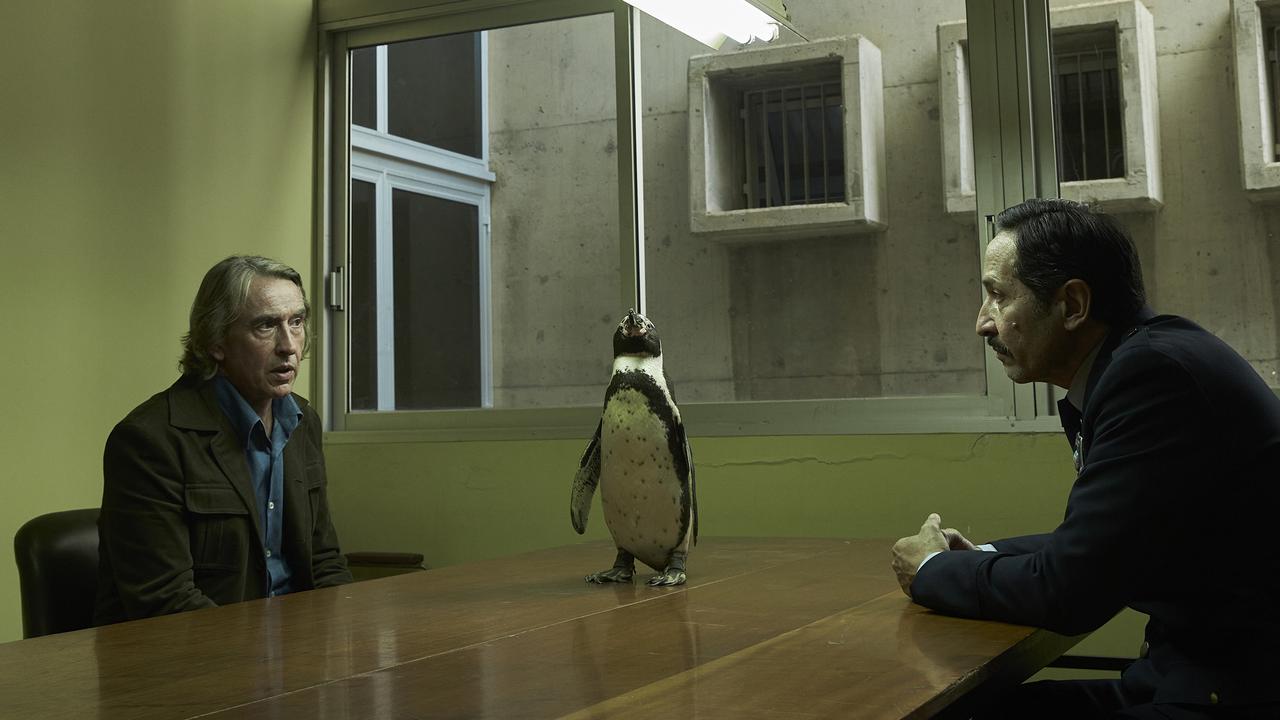Liberal dose of millennial struggle
Emma Seligman’s comedy Shiva Baby has become a huge hit, screening at the Melbourne and Adelaide festivals.

Since Emma Seligman’s comedy Shiva Baby premiered at the SXSW festival in the US last year, the film has become a huge hit, screening in Toronto and at the Melbourne and Adelaide festivals.
It’s a groundbreaking LGBTQ story for female Jewish millennials and is based on Seligman’s New York University thesis short film which, like her feature debut, stars her friend and fellow student, stand-up comedian Rachel Sennott, as Danielle, a directionless bisexual Jewish woman.
Sennott, who Seligman refers to as “a joke machine”, is quite a find. “I knew it was going to be funny in a very dark way, but Rachel put such a comedic stamp on the short film that I wasn’t expecting,” Canadian-born Seligman, 26 says over the phone from the US.
“She improvised so much and just made it her own, so there was no question about her starring in the feature film.”
Set in Brooklyn, Shiva Baby starts out with Danielle having sex with her sugar daddy, Max, who gives her money for her services. Most of the film takes place at a shiva, a Jewish mourning ritual akin to a wake, where Danielle’s parents are hassling her to find a man. Then Max turns up with his stunning blonde non-Jewish wife Kim (Dianna Agron) and baby.
If things aren’t awkward enough, Danielle’s ex-girlfriend is also there – and deemed to be the perfect daughter as she is studying law – and it soon becomes clear the young women still have feelings for each other. Where this will end up is anyone’s guess, but it’s a lot of fun as Danielle attempts to hide her sexual activities from her parents and from other prying relatives.
The concept of this very specific kind of sugar daddy is fascinating.
“I think that word is unfortunately outdated and derogatory,” Seligman says. “Having a sugar daddy is definitely along the lines of sex work, but it’s really tricky, because so many of these relationships are genuine.
“It’s not straight-up sex work where you come, you have sex, you get paid and you leave. A lot of my friends did it in college and some of them had sugar daddies who wanted to marry them and then some of them had very transactional relationships. Every single relationship is so different.
“The website that most of these people meet on functions as a dating site that’s geared toward college students and older, rich men.
“For many reasons, Danielle’s relationship is different in that she’s so privileged and she can make the relationship that she wants it to be very comfortably.”
Seligman, who is bisexual, grew up in Toronto in what she terms “a liberal Jewish family, but where there’s still a lack of understanding about gender fluidity”.
“They don’t understand as much as they think they do,” she says of her parents, admitting that a lot of the dialogue stems from them. “They can make small comments that push and pull in different ways and are hurtful.
“I don’t think it’s intentional. Now, they basically get it, but for a while they didn’t.”

In making the film, Seligman was surrounded by LGBTQ filmmakers, including producers Katie Schiller and Adelaide-born, Brooklyn-based Kieran Altman, the founder and owner of Dimbo Pictures, a production company that aims to produce and develop innovative and diverse projects, with a particular focus on LGBTQIA+ stories.
“You know, I have never been to Australia, but Kieran and his family have been extremely supportive of this movie,” Seligman says. “Kieran is just a delight and we’ve been friends for years. He was adored and loved by everybody on the movie and was one of the few people who isn’t Jewish.
“It was really special to see him support and represent the film at Australian film festivals when he was home for a while during the pandemic. I feel a deeper connection to our Australian audience through him.”
The film was made for little money and proved quite an effort.
“Part of the reason the producers were so attracted to the story was because they feel equally invested in telling queer stories that aren’t totally negative and are a little more nuanced and complicated and real,” Seligman says.
Still, comedies are probably the hardest kind of films to make.
“It makes me so happy that a lot of people think of the film as an old screwball comedy,” Seligman says. “But others point to its horror and thriller elements. In any case, I now have a much deeper respect for comedies after this, even if the world doesn’t really think of comedy as high art, which is fine.
“It’s really hard to make people laugh, so at every stage of the process you have to be thinking about that, while also making sure the story is important and grounded. And you have to make the audience cares about the characters.”
Seligman wasn’t specifically trying to make a movie for the millennials who have widely embraced it, though she concedes it’s very much about their struggle.
“I find it really frustrating how my parents’ generation still expects us, at least in the more traditional community I come from, to find jobs that are stable and have a salary and are along the more conventional career path,” she says.
“This all comes when we’re handed the recession, a horrible economy and a make-your-own-job kind of world, this gig economy, no matter what your level of privilege is. It’s a sort of scavenger hunt.”
Seligman particularly wanted to focus on young women, of any generation, and the pressures they face. “I wanted to put Danielle in an environment where you can see all those pressures coming in on her,” she says.
Those pressures are relayed by some fine veteran actors, most prominently Polly Draper, who has received raves for her fast wit as Danielle’s mum – Draper married into a Jewish family – and the dad, the instantly recognisable Fred Melamed, a Jewish veteran of seven Woody Allen films, who has appeared in TV shows such as Curb Your Enthusiasm and The Good Wife as well as the Coen brothers’ film A Serious Man.
“I was so shocked that Fred wanted to do this movie with a first-time director,” says Seligman.
“What’s so cool about him is that he just wants to work and he’s after good scripts and great characters. He didn’t mind that the set was run by young people, and it was so easy working with him. I barely had to direct him.”
The casting twist with the movie is that Sennot is not Jewish while the blonde Agron is.
“When we offered Dianna the part, she was on her way back from Israel. She’d never played anyone Jewish before because of the way she looks and she’d actually even played a nun a few times,” Seligman chuckles.
“So even though she wasn’t playing a Jewish character, she was really excited to be involved in something so Jewish.”
Seligman revelled in all the confusion. “I wasn’t really trying to make a statement about anything,” she says.
“And, to a certain degree, I feel like people have an idea of what you look like or don’t look like and their ideas aren’t always accurate.
“So it’s a funny element, but it was definitely very important to me to have lots of Jewish energy in the cast.”
Shiva Baby is in cinemas now




To join the conversation, please log in. Don't have an account? Register
Join the conversation, you are commenting as Logout